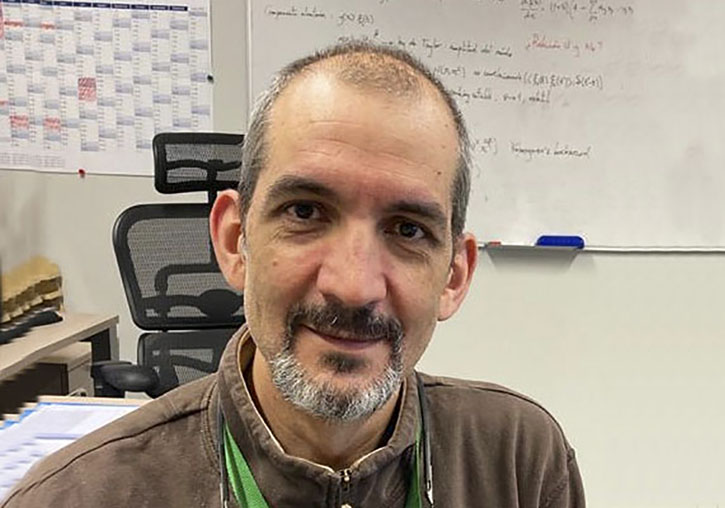Users
Social media
- More details here...
- Address
Parc Científic de la Universitat de València C/
Catedrático Agustín Escardino, 9
46980 Paterna (Valencia) Spain - Email:
iu.i2sysbio@uv.es - Phone:
(+34) 963544810
- Address
Links
The immune system as a whole conditions the evolution of viruses

Investigation
The immune system as a whole conditions the evolution of viruses

An investigation by the Institute of Integrative Systems Biology (I2SysBio, UV-CSIC) analyzes how genetic differences determine the virulence of pathogens such as SARS-CoV-2. The study, carried out in collaboration with the Pasteur Institute, will make it possible to develop more precise models on the evolution of viruses in the population, whose immunity varies depending on genes and other factors such as age and nutrition.
During the COVID-19 pandemic, some people have been infected several times with the SARS-CoV-2 virus while others have never been infected. Susceptibility to infection with a virus has genetic bases, but this time the question is whether the evolution of the virus also depends on the genetics of the host.
This is the question that guides a work carried out by the Institute of Integrative Systems Biology (I2SysBio), a joint center of the University of Valencia (UV) and the Higher Council for Scientific Research (CSIC), in collaboration with the Pasteur Institute. Their results suggest that what determines viral diversity and the evolution of viruses is the immune system as a whole, and not only specific defenses. The study is published in the journal Nature Ecology and Evolution.
To carry out this research, the team used an experimental model formed by the vinegar fly (Drosophila melanogaster) and its natural pathogen, the C virus. An experiment was carried out on the evolution of the virus, analyzing the intensity of the symptoms, the pathogenesis and the genetic variability of the already evolved viruses. The evolutionary forces – mutation, natural selection and chance – that govern the C virus process in each genotype of the fly were also studied.
“First of all, we have observed how the virus optimizes its ability to reproduce and infect the genotype of the host in which it evolves, depending on the defense mechanisms of the latter and its response to the infection,” explains Santiago Elena Fito, who heads the Evolutionary and Systems Virology group at the I2SysBio. “In addition, we saw that rapid adaptation to the host meant a decrease in the severity of symptoms,” he continues.
Finally, the research team observed that the genetic diversity of the viruses, as well as the mutations that they accumulated in their genome, depended on the precise genotype of the host. “Globally, our results indicate that it is the immune system as a whole, and not the specific defense mechanisms of each case, that determines the genetic diversity of viruses and their evolution,” summarizes Santiago Elena.
Asked about the possible consequences of these results for antiviral treatments, the I2SYSBio scientist and co-author of the article points out that “antiviral drugs act on the virus itself or on its interaction with cells, blocking its entry through For example, and not on the immune system. Our complex immune system is stimulated by natural infections and, as is well known, by vaccines," he concludes.
Carried out in collaboration with Carla Saleh's group at the Pasteur Institute (Paris), the work improves understanding of the implication of genetic differences in host populations in the ability to resist infection and in the severity of symptoms produced by viral pathogens. This will allow the development of more precise models on how viruses can evolve in genetically heterogeneous populations, with levels of immunity that vary with age and nutritional status, among other factors. MC. Innate immune pathways act synergistically to constrain RNA virus evolution in Drosophila melanogaster. Nat. Ecol. Evol. 2022. DOI: https://doi.org/10.1038/s41559-022-01697-z
Link list:


